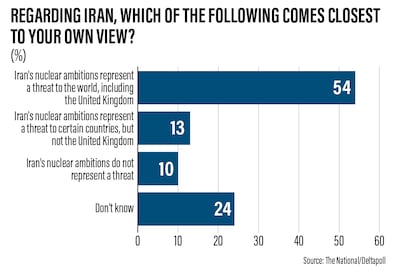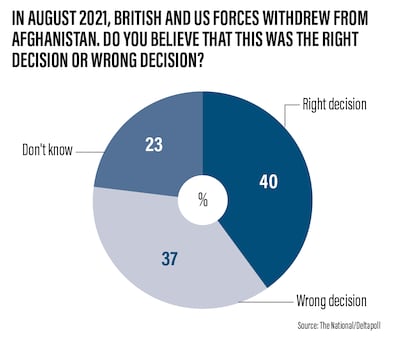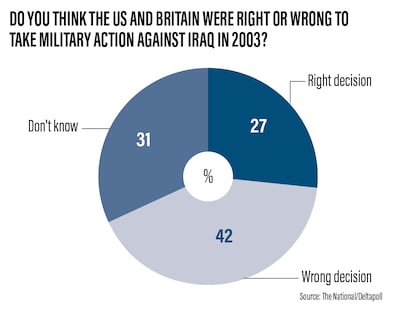At a time when there is mounting concern about Iran’s nuclear ambitions, the findings of a new poll show that a clear majority of the British people fully comprehend that Tehran potentially poses as much of a threat to their own welfare as it does the Middle East.
In the two decades or so since Iran’s nuclear programme first became an issue of global concern, there has been a tendency among some Western leaders to dismiss the threat Iran’s activities pose to their security. They argue it is a regional issue that requires a regional solution.
But while this argument may have had some merit when Iran’s missile capabilities were limited in range, the paradigm has changed significantly now that Iran has developed a new generation of long-range missiles. Western intelligence experts believe these are capable of carrying nuclear warheads. Suddenly, it is not Iran’s regional rivals in the Middle East that could be the targets of Iranian missiles, but European capitals, too.
Iran’s willingness, moreover, to use its missiles to attack European targets was made explicit in July. A news website affiliated with the Islamic Revolutionary Guard Corps (IRGC), the paramilitary organisation responsible for defending the Iranian regime, said it would be entirely justifiable for the organisation to attack opposition groups based in Europe with missiles and drones.
The escalating threat posed by Iran’s nuclear-related activities is clearly no longer confined to the Middle East region, as demonstrated by the findings of a new poll by The National.

By far the most revealing response was that 54 per cent of Britons now accept that Iran’s nuclear ambitions represent a threat to the entire world ― including the UK ― and is not only confined to the Middle East. By contrast, only 10 per cent believe that Iran’s nuclear ambitions do not represent a threat.
The acknowledgement that Iran’s nuclear ambitions can no longer be ignored by the wider international community would also explain the strong support expressed in the poll for Nato to expand its role across Europe.
Calls have been growing throughout Europe for Nato to increase its defensive capabilities following the outbreak of the Ukraine war earlier this year. This has essentially been a conflict between Russia and Ukraine over disputed territory in eastern and southern Ukraine.
The poll found that 46 per cent of respondents were in favour of Nato expanding its role across Europe following recent events in Ukraine, while only 5 per cent wanted it to reduce this.
Recent reports that Iran has been actively supporting Moscow by providing military equipment such as drones, as well as helping Russia to avoid the effects of Western sanctions, also mean that Tehran is closely involved in the conflict. It therefore poses just as much of a threat to Western security as Russia.
If the poll shows a growing awareness among the British public on the need to respond to the threat posed to European security by the likes of Iran and Russia, there are divisions over how the West has handled previous conflicts. These include the recent campaigns in Iraq and Afghanistan.

On Iraq, only 27 per cent of respondents thought the US and Britain were right to overthrow Saddam Hussein’s regime in 2003. Meanwhile, 40 per cent believed Britain and the US took the right decision to withdraw their forces from Afghanistan last summer.
There is one important conclusion that can be drawn from the report, therefore. While a significant percentage of the British public are in favour of taking robust measures to safeguard their security, they also expect their political leaders to give serious consideration to the consequences of their decisions before authorising military action.



